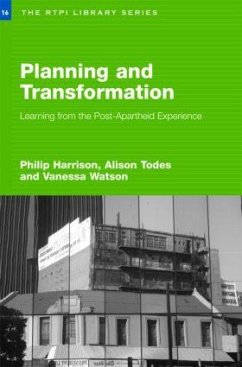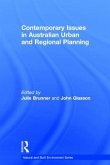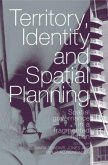The book is subdivided into sections which reflect the main themes in international planning debates such as: the changing nature of planning under apartheid and the post-apartheid era; planning and governance, including planning at the local, regional, national and transnational scales; discourses of planning, including those of spatial frameworks, integration and transformation, planning's relationship to the market, and discourses related to environment and sustainability; planning and society, including professionalism, education, planning values, its response to diversity and informality, and to the big social issues of AIDS, poverty and crime; and, the power of planning in the South African context and the limits to its power.
Planning and Transformation provides a comprehensive view of planning under political transition in South Africa, offering an accessible resource for both students and researchers in an international and a local audience. In the years after the 1994 transition to democracy in South Africa, planners believed they would be able to successfully promote a vision of integrated, equitable and sustainable cities, and counter the spatial distortions created by apartheid. This book covers the experience of the planning community, the extent to which their aims were achieved, and the hindering factors. Although some of the factors affecting planning have been context-specific, the nature of South Africa's transition and its relationship to global dynamics have meant that many of the issues confronting planners in other parts of the world are echoed here. Issues of governance, integration, market competitiveness, sustainability, democracy and values are significant, and the particular nature of the South African experience lends new insights to thinking on these questions, exploring the possibilities of achievement in the planning field.
Hinweis: Dieser Artikel kann nur an eine deutsche Lieferadresse ausgeliefert werden.
Planning and Transformation provides a comprehensive view of planning under political transition in South Africa, offering an accessible resource for both students and researchers in an international and a local audience. In the years after the 1994 transition to democracy in South Africa, planners believed they would be able to successfully promote a vision of integrated, equitable and sustainable cities, and counter the spatial distortions created by apartheid. This book covers the experience of the planning community, the extent to which their aims were achieved, and the hindering factors. Although some of the factors affecting planning have been context-specific, the nature of South Africa's transition and its relationship to global dynamics have meant that many of the issues confronting planners in other parts of the world are echoed here. Issues of governance, integration, market competitiveness, sustainability, democracy and values are significant, and the particular nature of the South African experience lends new insights to thinking on these questions, exploring the possibilities of achievement in the planning field.
Hinweis: Dieser Artikel kann nur an eine deutsche Lieferadresse ausgeliefert werden.








